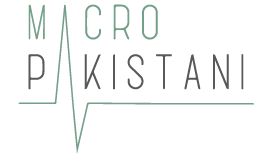In 2010, Pakistan declared 22nd December as National Women’s Working Day, in recognition of the struggle of working women in the country. Unfortunately, in the 10 years since, Pakistan has continually failed to provide a dignified, respectful and enabling working environment for women. Labor force participation rates for women at 22% are abysmally low, compared to men at 82%.
They are also one of the lowest in South Asia and the rest of the world. This week’s contributor sheds light on the topic by highlighting the key reasons behind these metrics and the potential upside Pakistan can benefit from by bringing more women into the labor force. If you have suggestions for similar significant topics with economic relevance, please feel free to share by replying to this email.
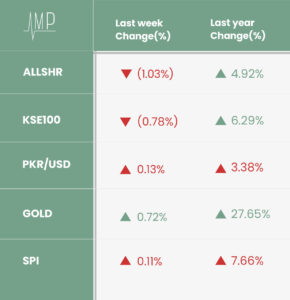
While the stock market fell slightly compared to last week, the KSE-100 was up by over 6% since last year. The index is up by almost 60% since 25th March 2020, when it had fallen to 27,229 pts due to the lockdowns. Despite COVID-19, 4 new companies were listed on the Pakistan Stock Exchange in 2020, and together with existing listed companies, managed to raise PKR 35.4 billion. This number was almost the same as last year’s, which during a global pandemic, is a feat on its own. Gold prices continued their steady rise and the exchange rate again remained stable at around PKR 160/USD. The week on week inflation rate was positive for the first time since 19th November, with its decline lasting 4 weeks.
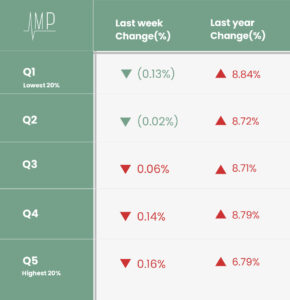
The poorest of the country continued to experience lower inflation than the rest of the country with prices for key food commodities falling. Prices for Chicken (-6.71%), Potatoes (-12.05%) and Onions (-7.44%) continued their weekly decline while those for Tomatoes (+9.5%) rose. Annual inflation is under 8% again and we should hope for this trend to continue. Special attention should be paid to the prices of chilies and eggs, which are up by 86% and 60% respectively since last year. Visit our dedicated page for illustrative data on Pakistan’s economy and track the ups and downs of key metrics to stay up to date.
Why do we need to increase participation of women in Pakistan?
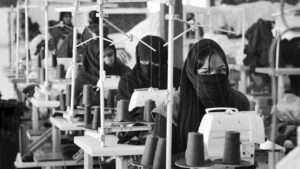
By Nazish Shekha
Nazish is the Head of Research at the Pakistan Business Council’s Center of Excellence in Responsible Business (CERB). Given her work on diversity and inclusion in the private sector, she is one of the best-placed women in Pakistan to comment on the need to increase female labor force participation in the country. While the overall rate of participation of women is low at 22%, the conditions across provinces like Balochistan, KP and Sindh are even worse. Punjab has the highest participation at 29.6% and even that is low compared to global indicators.
Read more
Labor Force Participation by gender and province (%)
The gender divide in labor force partition is the highest in Balochistan and lowest in Punjab
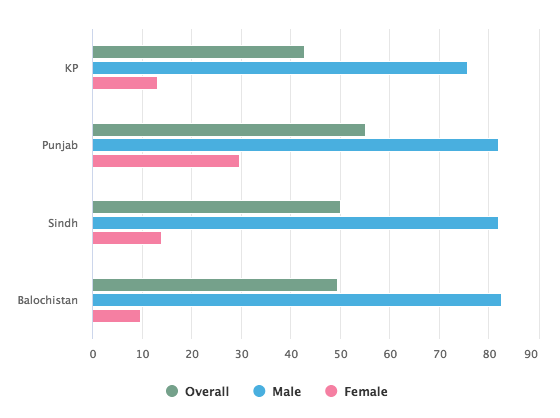
Source: Pakistan Employment Trends 2018
VIEW GRAPH IN ORIGINAL ARTICLE
Globally, there is increasing evidence that workplace diversity leads to better decision-making and profits, with studies showing a strong correlation between the number of women in top positions and company performance. Research undertaken in Pakistan shows similar results. A recent report released by the Securities and Exchange Commission of Pakistan, identified a strong correlation with number of women on the boards of listed companies and their profitability. Read the full article to find out what areas Pakistan should focus on to improve participation of women and boost its GDP by up to 30%!
Average Financial Performance of Companies with and without Women Directors
Strong correlation between presence of female leaders and higher profitability in Pakistani companies
Return on Assets (%)
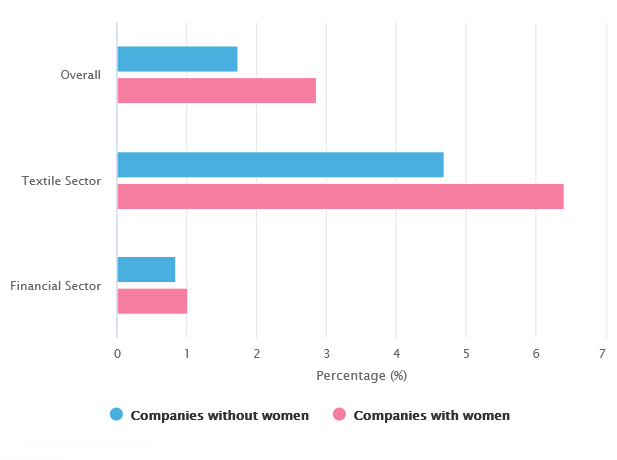
Return on Equity (%)
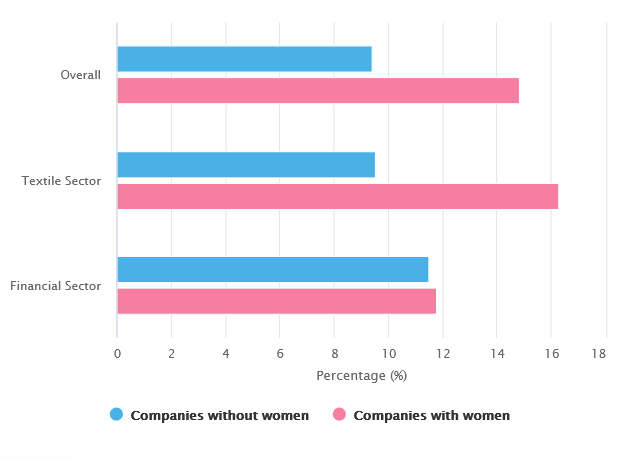
Source: Securities and Exchange Commission of Pakistan
VIEW GRAPHS IN ORIGINAL ARTICLE
What Else We’re Reading (Local)
Unless systems are set to share information and allow citizens to question the government, there will be little trust in the government’s actions or intentions (Dawn)
Coal may be the dirtiest fuel, but there exist several viable options to continue using indigenous coal while reducing carbon emissions (Profit)
Pakistani companies raised PKR 35.4 billion in 2020 via Initial Public Offerings and Rights from PSX, as compared to Rs 35.7bn raised in 2019 (Business Recorder)
What Else We’re Reading (International)
UK and EU agree historic Brexit trade deal that will guarantee tariff-free trade on most goods and create a platform for future cooperation (Financial Times)
PM Modi tells Indian farmers how agricultural reforms have given better options to farmers, as protests against the new farm laws continue in New Delhi (Al Jazeera)
Markets set for a coronavirus vaccine led recovery in 2021 with Europe expected to outperform the US and above average global economic growth (ETF Stream)
